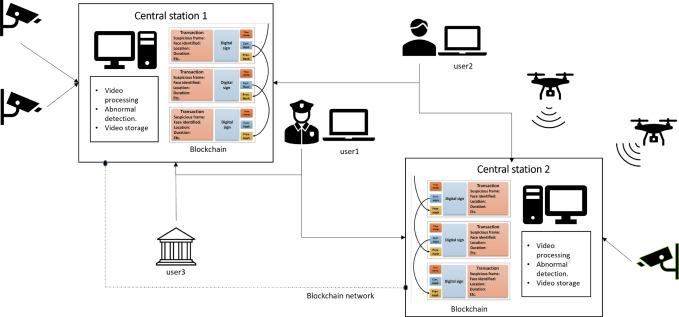10 Inspiring case Studies Showcasing Blockchain in Higher Education
Blockchain technology is rapidly transforming numerous industries, and higher education stands at the forefront of this revolution. By enhancing transparency, streamlining processes, and securing records, blockchain in higher education introduces new levels of trust and innovation. In this article, we’ll explore 10 inspiring case studies from universities worldwide, detailing how blockchain is used to address age-old challenges and pave the way for a smarter, digitally driven academic landscape.
Understanding Blockchain in Higher Education
Before diving into the case studies, it’s essential to understand what blockchain offers within academic institutions. Put simply, blockchain is a decentralized, immutable digital ledger that records and verifies transactions securely. For higher education, this means student credentials, diplomas, transcripts, and research outcomes become tamper-proof, easily accessible, and verifiable across the globe.
Benefits of Blockchain in Higher Education
- Immutable academic Records: Ensures transcripts and diplomas can’t be altered or forged.
- Streamlined Credential Verification: Speeds up hiring and enrollment processes by simplifying verification.
- Student Empowerment: Gives students greater control over their academic data and achievements.
- Enhanced Global Recognition: Credentials are verifiable worldwide, facilitating international mobility.
- Reduced Administrative Costs: Automating record-keeping decreases paperwork and operational expenses.
10 Inspiring Blockchain in Higher Education Case Studies
1. MIT: Digital Diplomas on the Blockchain
The Massachusetts Institute of Technology (MIT) pioneered the use of blockchain for issuing digital diplomas via the Blockcerts platform. In 2017, MIT awarded blockchain-based digital certificates to graduates, enabling them to access and share their credentials securely. This initiative not only prevents degree fraud but also empowers students with lifelong control over their academic records.
2. University of Nicosia: Blockchain-Powered Certification
As the first university to accept Bitcoin for tuition and offer a Master’s in Digital Currency, the University of Nicosia utilizes blockchain to store and verify degrees. Their blockchain solutions provide transparent and instantly verifiable diplomas—all accessible online, eliminating slow and expensive notarization processes.
3. Sony Global Education & IBM: Blockchain for Educational Records
Sony Global Education, in collaboration with IBM, developed a platform using blockchain to securely store and share student records and transcripts. The technology allows universities, students, and employers to access authenticated details efficiently, promoting collaboration and trust across international borders.
4. Holberton School: Transparent Learning Achievements
Holberton School leverages blockchain to publish all its graduates’ transcripts and skills openly. Students can share their blockchain-verified academic results with future employers, streamlining the hiring process and ensuring total transparency in skills verification.
5. Malta’s Government Initiative: National Blockchain Credentials
The government of Malta’s blockchain pilot—“Blockcerts”—is available for all educational institutions on the island. From kindergarten to higher education, certificates are issued and stored securely on the blockchain. This initiative effectively eliminates academic fraud and supports seamless movement for students domestically and abroad.
6. University of Melbourne: Blockchain Academic Credentials
Working with Learning Machine, the University of Melbourne became the first asia-Pacific university to issue recipient-owned blockchain credentials, starting with the “Certificate of Continuing Education.” The move helped students and employers verify records without a central authority and fostered a trust-driven academic environment.
7. Central New Mexico Community College (CNM): Blockchain Diplomas at Scale
CNM was one of the first community colleges in the U.S. to implement blockchain for digital diplomas. By offering all students blockchain-secured verifiable certificates, CNM cut down on administrative bottlenecks and gave graduates a fast, secure way to share qualifications worldwide.
8. ECPI University: Streamlining transfer Credits
ECPI University uses blockchain to simplify the transferability of credits between institutions. This allows students to move seamlessly between colleges,preventing the loss of previously earned credits and reducing validation times during admissions.
9. Singapore Management University: Cross-Border Degree Verification
In partnership with Deloitte, Singapore Management University developed a blockchain-based platform for verifying student degrees. The system is especially beneficial for international students or those seeking global employment, ensuring swift, tamper-proof authentication regardless of location.
10. King’s college London: Blockchain for Research Data Integrity
King’s College London explores blockchain not only for academic credentials but also in research. Their blockchain-integrated platform timestamps and secures research data, enhancing reproducibility, transparency, and data integrity—vital components for modern scientific advances.
Real-World Insights: First-Hand Experiences with Blockchain
Students and administrators from blockchain-forward universities report numerous positive outcomes:
- Immediate Access: Graduates at MIT and CNM appreciate having instant access to their blockchain diplomas, removing lengthy waits and paperwork.
- Cross-Border Trust: International employers trust credentials from the University of Melbourne and Singapore management University, significantly improving global employability.
- Simplified Processes: Administrators cite reduced manual work, fewer verification requests, and cost savings thanks to automated processes.
Best Practices for Implementing Blockchain in Universities
- start with Clear Use Cases: Pilot blockchain for credentials or transcripts before expanding to other uses.
- Engage Stakeholders: Involve students, faculty, employers, and IT departments early in the project.
- Choose the Right Platform: Evaluate open-source tools like Blockcerts or partner with established tech providers like IBM and Deloitte.
- Ensure Data Privacy Compliance: Align blockchain solutions with GDPR or relevant local data regulations.
- Educate and Train Users: Provide workshops to raise awareness and understanding of blockchain benefits and usage.
Conclusion: The Future of Blockchain in Higher Education
The above case studies clearly illustrate how blockchain in higher education is more than just a buzzword—it’s transforming how universities manage records, grant diplomas, and authenticate achievements.As educational ecosystems worldwide strive for trust, transparency, and adaptability, blockchain emerges as a critical enabler. Institutions investing in blockchain today aren’t just keeping up with technology—thay’re paving the way for secure, student-centric future learning environments.
Are you ready to embrace blockchain in higher education? Explore how these innovative case studies can inspire your campus to build trust, enhance mobility, and revolutionize student success.

